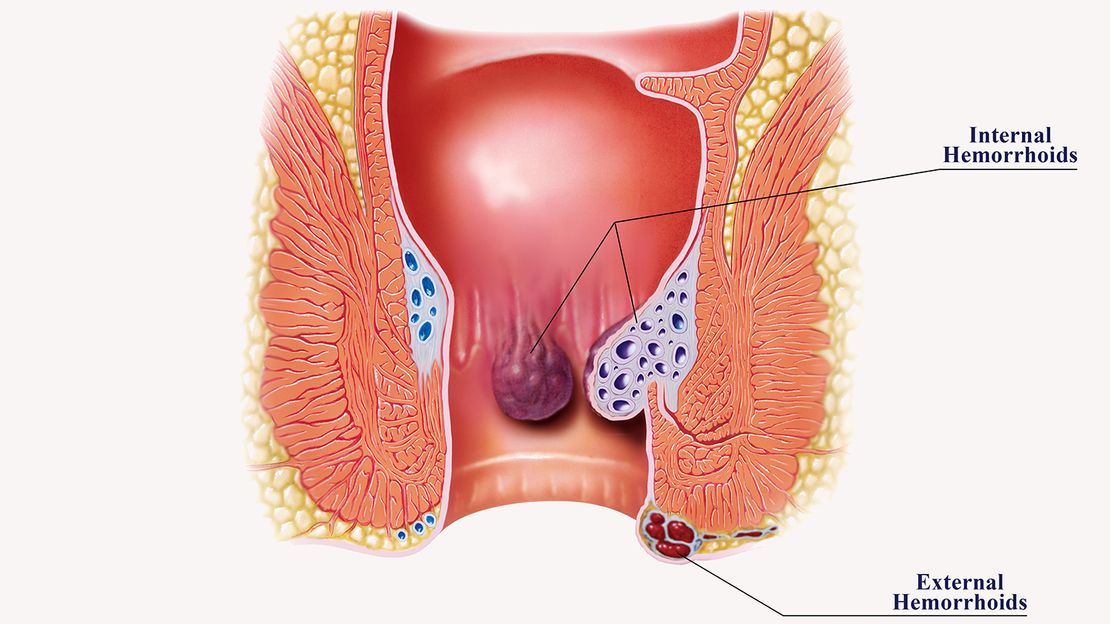Metro Colon Rectum - Proctology Corner - Hemorrhoids
Hemorrhoids are the normal veins that drain the anal canal and exist above and below the dentate line, the physiologic divider between inside and outside of the body. Physiologic hemorrhoids are there the day you are born and for every day of your life. Think of hemorrhoids as a long party balloon. When the balloon has never been blown up it remains small and retains its resilience. As the balloon/hemorrhoid is pressurized repeatedly over time it will respectively expand and contract.
Over time and with repeatedly pressurization, the resilience of the balloon/hemorrhoid will deteriorate. As the resilience deteriorates, the lining of the balloon/hemorrhoid will weaken, and it can swell and is more likely to pop. Clinically, problematic hemorrhoids above the dentate line (inside the anus) usually are painless and will swell and bleed. Problematic hemorrhoids below the dentate line (outside the anus) usually present as swelling with pain.
Problematic hemorrhoids of both types are due to increases in pressure in the abdomen compared to the pressure in the anal canal. This can be secondary to constipation, pregnancy, straining, vigorous exercise, and long car rides to name a few. Each episode of pressurization only causes a very small change in the resilience of the hemorrhoids but aggregated over many years, the changes become clinically significant, and patients eventually come to see their friendly proctologist.
The treatment for hemorrhoids focuses on both eliminating the causing factors of pressurization and on improving the resilience of the hemorrhoids and is grouped into treatments at home, in the office or in the operating room. Home based treatments focus on increasing water intake, increasing dietary fiber and decreasing time on the toilet; there are little to no side effects. Home based treatments are only effective while they are being actively performed. Office based treatments focus on increasing the resilience of the hemorrhoids through localized scarring but require multiple treatments; there are minor side effects like pelvic pressure and sometimes bleeding. Office based treatments usually last for months.
Operating room treatments focus on destruction of the hemorrhoids and are the most durable because they force the body to recreate the internal/external hemorrhoidal veins. Operating room treatments also have the most pronounced side effects; primarily pain, bleeding and change in bowel function. These side effects are not permanent and usually resolve within one month of surgery. Furthermore, operative treatment plans for hemorrhoids are the most durable and usually last for years.
So, whether you currently have symptomatic hemorrhoids, or are planning to develop them in the coming years. Know that you are not alone and that your neighborhood proctologist is happy to help.

